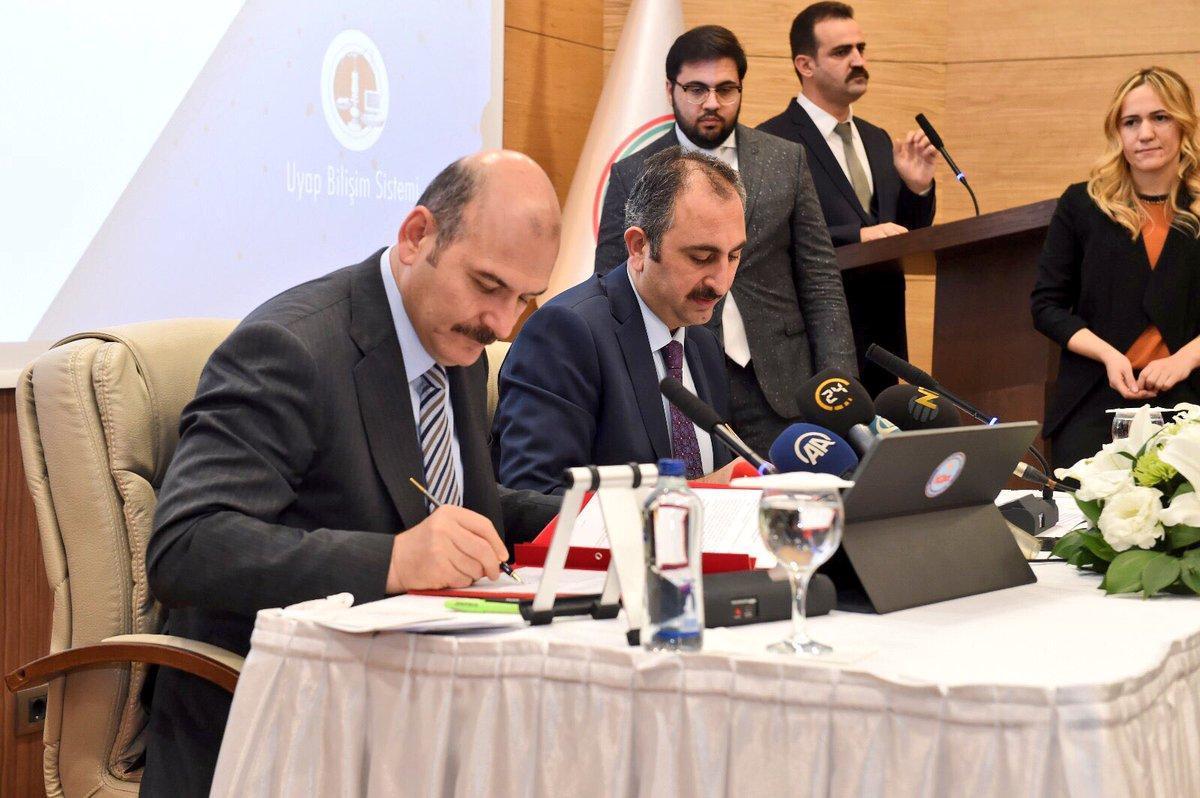
Interior Minister Süleyman Soylu (L) and Justice Minister Abdulhamit Gül
The two NATO allies lifted sanctions on their ministers on Nov. 2 after Turkish President Recep Tayyip Erdoğan and his United States counterpart Donald Trump held a phone call on Nov. 1.
Ankara and Washington simultaneously announced the move, which came two weeks after the release of U.S. Pastor Andrew Brunson, who was freed after spending almost 1.5 years in custody in Turkey.
In parallel to the U.S. Treasury lifting sanctions on Turkish ministers, Turkey also lifted the travel ban, freezing of assets and ban on financial and trade transactions of the U.S. minister in Turkey, the Turkish Foreign Ministry spokesperson said in a written statement on Nov. 1.
Bilateral ties have spiraled into a full-blown crisis over the trial of U.S. Pastor Andrew Brunson in the past few years.
Washington sanctioned Turkish Interior Minister Süleyman Soylu and Justice Minister Abdülhamit Gül, blocking their access to U.S. assets for their alleged role in the detention of Brunson. Turkey also decided to retaliate in kind on two U.S. ministers, Jeff Sessions and Kirsjten M. Nielsen.
Brunson was accused of helping supporters of Fethullah Gülen, the U.S.-based cleric who Turkish authorities say masterminded the 2016 coup attempt against Erdoğan in which 250 people were killed.
Turkish court releases US pastor Brunson after eventful hearing

Turkey has waged a two-year effort to have Gülen extradited from the U.S. Brunson was also charged with supporting the illegal PKK group.
Last summer, Turkey reportedly sought to persuade the U.S. to spare Turkey’s state-owned Halkbank from a threatened fine for allegedly helping Iran evade U.S. sanctions in return for the release of Brunson, but the talks failed and Brunson’s detention prolonged in August.
The U.S. announced sanctions on two top officials in Erdoğan’s cabinet after a Turkish court rejected Brunson’s appeal to be released from house arrest during his trial.
In August, Trump also authorized a doubling of duties on aluminum and steel imported from Turkey. Turkey responded in kind, raising tariffs on U.S. cars, alcohol and tobacco imports.
Anticipation of the U.S. sanctions had already helped send the lira to an all-time low against the dollar.
The lira has lost nearly 40 percent of its value against the dollar this year on concerns about the country’s monetary policy and the diplomatic dispute between Ankara and Washington.
Brunson’s detention was not the only point of tension in U.S.-Turkish relations.
Ankara and Washington are also at odds over diverging interests in Syria, where Washington supports the YPG, whom Turkey regards as the Syrian branch of the PKK.
After a delay in the implementation of the Manbij deal, which envisages the retreat of YPG members from Syria’s northwestern town of Manbij, Turkish and U.S. soldiers launched joint patrols around the town on Nov. 1 as part of the road map.
Lira further recovers against dollar amid signals of ease in trade tensions
